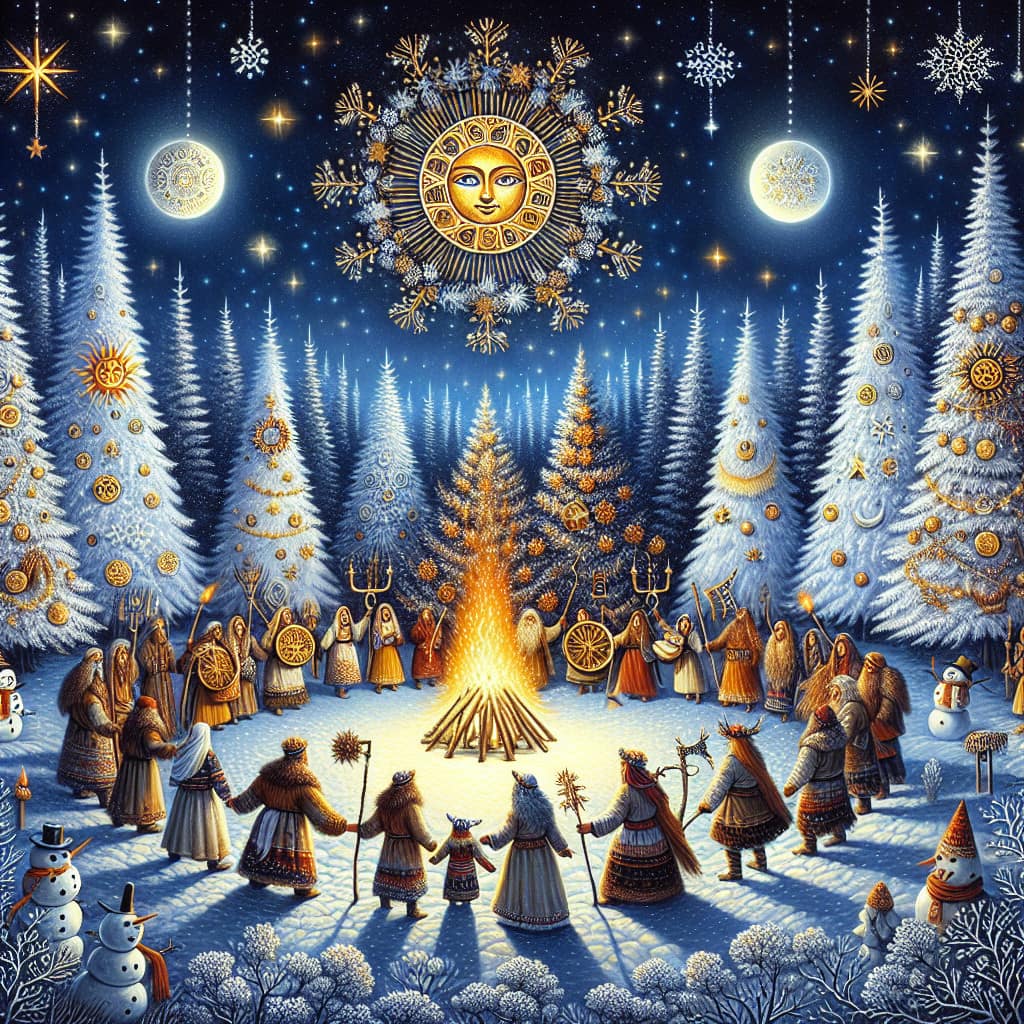The winter solstice is a special day of the year that marks the shortest day and longest night in the northern hemisphere. This event has been celebrated for centuries by various cultures around the world, and is often associated with pagan holidays. In this article, we’ll take a closer look at the winter solstice and its roots in paganism, exploring how it has been celebrated in different cultures over the centuries.

Winter Solstice, also known as Yule, is one of the most important holidays in the Pagan calendar, celebrated by many different Pagan traditions. It is a celebration of the longest night of the year, and the return of the light and the Sun. It is a time of renewal, of new beginnings, and of hope.
What is the meaning of the Winter Solstice?
The Winter Solstice marks the longest night of the year and is a time of reflection and renewal. It is a time to honor the darkness and to prepare for the coming of the light. It is a time to remember the cycles of nature and to be thankful for the gifts of the season. It is a time to celebrate the rebirth of the Sun and the promise of new beginnings.
What traditions are associated with the Winter Solstice?
The traditions associated with the Winter Solstice vary from culture to culture. Many Pagans celebrate the Solstice with bonfires, feasts, rituals, and other festivities. Yule logs, evergreen trees, and wreaths are often seen as symbols of the season. Many Pagans give offerings to the gods and goddesses, and some exchange gifts with friends and family.
In some traditions, the Solstice is a time to honor the ancestors, to remember those who have gone before us, and to give thanks for their gifts and wisdom. It is a time to give thanks for the blessings of the past year and to look forward to the promise of the year to come.
What is the history of the Winter Solstice?
The history of the Winter Solstice is long and varied. It has been celebrated by many cultures throughout history, including the ancient Egyptians, Greeks, Romans, and Celts. In Europe, the Solstice was celebrated as Yule, and was a time of feasting and merrymaking. In some cultures, the Solstice was seen as a time of renewal, with the Sun returning to bring new life and hope to the world.
What is the significance of the Winter Solstice?
The Winter Solstice marks the beginning of winter and the return of the light. It is a time of renewal, of new beginnings, and of hope. It is a time to be thankful for the blessings of the past year and to look forward to the promise of the year to come. It is a time to honor the darkness and to prepare for the coming of the light.
The Winter Solstice is a time of celebration and joy for many Pagans. It is a time to remember the cycles of nature, to honor the ancestors, and to give thanks for the gifts of the season. It is a time to renew our commitment to our spiritual path and to look forward to the coming of the light.
What can I do to celebrate the Winter Solstice?
There are many ways to celebrate the Winter Solstice. You can light candles, decorate your home with evergreen trees and wreaths, exchange gifts with friends and family, and gather around a bonfire. You can also give offerings to the gods and goddesses, and remember those who have gone before us. You can also take time to be thankful for the blessings of the past year and to look forward to the promise of the year to come.
No matter how you choose to celebrate the Winter Solstice, it is a time of renewal, of new beginnings, and of hope. It is a time to honor the darkness and to prepare for the coming of the light. It is a time to remember the cycles of nature and to be thankful for the gifts of the season. It is a time to celebrate the rebirth of the Sun and the promise of new beginnings.
The winter solstice is a time of celebration for many cultures around the world. From ancient pagan rituals to modern-day festivities, the winter solstice has a long and varied history. While the exact origins of the celebration are unknown, its symbolism of rebirth, renewal, and hope is still relevant today. Whether you choose to observe the winter solstice in a spiritual or secular way, it is an important reminder of the power of nature and the importance of coming together to celebrate the changing of the seasons. The winter solstice is an important reminder of the beauty and mystery of the natural world and of our interconnectedness with it.





